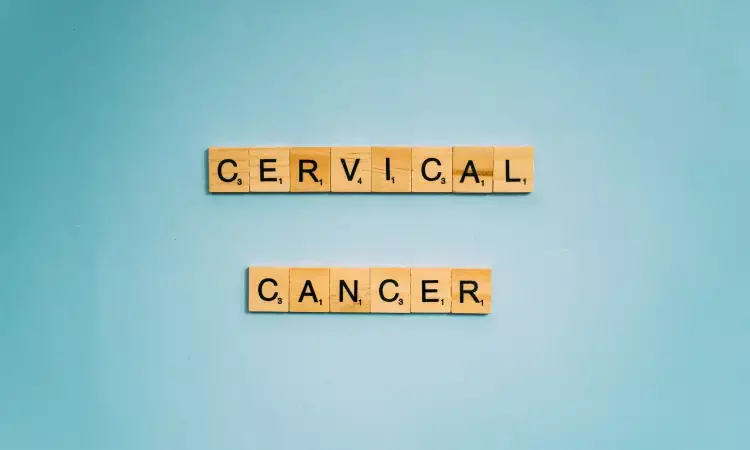- Home
- Medical news & Guidelines
- Anesthesiology
- Cardiology and CTVS
- Critical Care
- Dentistry
- Dermatology
- Diabetes and Endocrinology
- ENT
- Gastroenterology
- Medicine
- Nephrology
- Neurology
- Obstretics-Gynaecology
- Oncology
- Ophthalmology
- Orthopaedics
- Pediatrics-Neonatology
- Psychiatry
- Pulmonology
- Radiology
- Surgery
- Urology
- Laboratory Medicine
- Diet
- Nursing
- Paramedical
- Physiotherapy
- Health news
- Fact Check
- Bone Health Fact Check
- Brain Health Fact Check
- Cancer Related Fact Check
- Child Care Fact Check
- Dental and oral health fact check
- Diabetes and metabolic health fact check
- Diet and Nutrition Fact Check
- Eye and ENT Care Fact Check
- Fitness fact check
- Gut health fact check
- Heart health fact check
- Kidney health fact check
- Medical education fact check
- Men's health fact check
- Respiratory fact check
- Skin and hair care fact check
- Vaccine and Immunization fact check
- Women's health fact check
- AYUSH
- State News
- Andaman and Nicobar Islands
- Andhra Pradesh
- Arunachal Pradesh
- Assam
- Bihar
- Chandigarh
- Chattisgarh
- Dadra and Nagar Haveli
- Daman and Diu
- Delhi
- Goa
- Gujarat
- Haryana
- Himachal Pradesh
- Jammu & Kashmir
- Jharkhand
- Karnataka
- Kerala
- Ladakh
- Lakshadweep
- Madhya Pradesh
- Maharashtra
- Manipur
- Meghalaya
- Mizoram
- Nagaland
- Odisha
- Puducherry
- Punjab
- Rajasthan
- Sikkim
- Tamil Nadu
- Telangana
- Tripura
- Uttar Pradesh
- Uttrakhand
- West Bengal
- Medical Education
- Industry
Introduction of HPV vaccine linked to reduced deaths due to cervical cancer among young women: JAMA

Cervical cancer deaths have plunged dramatically among women under age 25, and researchers at MUSC Hollings Cancer Center believe this is likely due to HPV vaccination.
Their study, published in JAMA, is the first to suggest the impact of HPV vaccination on cervical cancer deaths.
“We observed a substantial reduction in mortality – a 62% drop in cervical cancer deaths over the last decade, likely due to HPV vaccination,” said senior author Ashish Deshmukh, Ph.D., co-leader of the Cancer Prevention and Control Research Program at MUSC Hollings Cancer Center. “We cannot think of any other reason that would have contributed to such a marked decline.”
The human papillomavirus, or HPV, causes nearly all cases of cervical cancer. The HPV vaccine was introduced in 2006. At first, it was available only to adolescents, but eligibility has since been expanded to include adults up to age 45 in some cases.
Previous studies have looked at the rates of HPV infection, precancer and cervical cancer incidence since the introduction of the vaccine, and all of those indicators have declined. The next logical step was to look at death rates, Deshmukh said.
Although cervical cancer is rare in women under age 25, it does occur. By examining deaths in this age group, researchers were able to see the early impact of the vaccine. Women who were 25 in 2021, the final year included in this study, would have been 10 years old when the vaccine was introduced.
The researchers looked at cervical cancer deaths in three-year blocks of time. Through the 1990s, there were between 50 and 60 cervical cancer deaths nationally in women under the age of 25 in each three-year block of time. During the 2019-2021 time period, there were only 13 deaths.
However, the team sounded an alarm. Healthy People 2030 has a goal of reaching an 80% HPV vaccination rate, but the Centers for Disease Control and Prevention reported earlier this year that only about 60% of 13to 15 year olds have received the recommended doses.
“There has been a decline in HPV vaccination post COVID-19 in the most recent generation of U.S. adolescents. This is troubling as a decline in vaccination uptake would potentially lead to smaller gains,” Deshmukh said.
Reference:
Dorali P, Damgacioglu H, Clarke MA, et al. Cervical Cancer Mortality Among US Women Younger Than 25 Years, 1992-2021. JAMA. Published online November 27, 2024. doi:10.1001/jama.2024.22169.
Dr Kamal Kant Kohli-MBBS, DTCD- a chest specialist with more than 30 years of practice and a flair for writing clinical articles, Dr Kamal Kant Kohli joined Medical Dialogues as a Chief Editor of Medical News. Besides writing articles, as an editor, he proofreads and verifies all the medical content published on Medical Dialogues including those coming from journals, studies,medical conferences,guidelines etc. Email: drkohli@medicaldialogues.in. Contact no. 011-43720751


